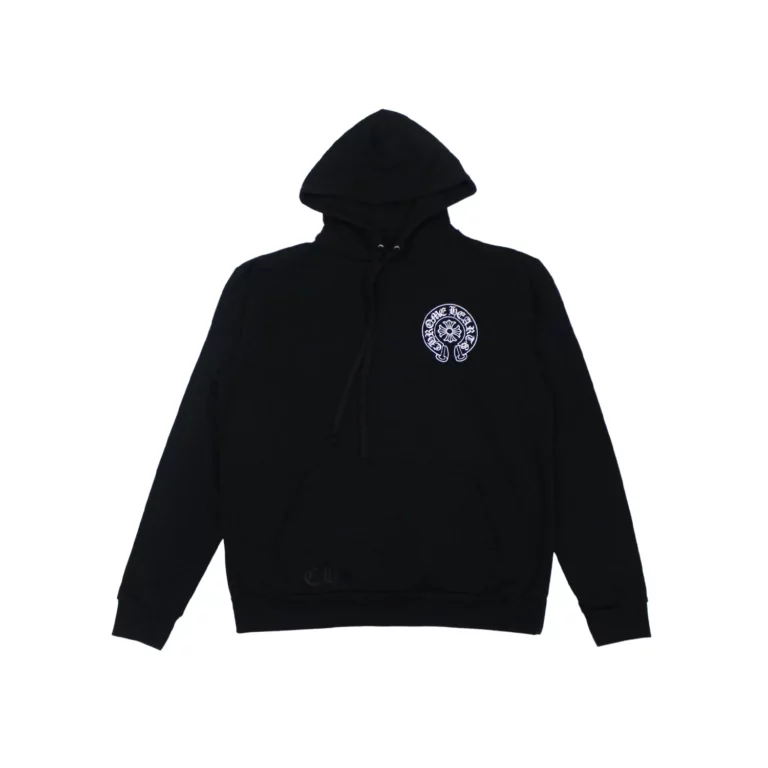The Future of Hoodies Lies in Minimalist Design

The Future of Hoodies Lies in Minimalist Design. Hoodies began as utilitarian workwear in the 1930s, but by the 1990s they became canvases for loud logos and graffiti prints. The 2010s amplified this with hype drops and archival revivals, turning every chest into a billboard. Yet in 2025, the pendulum swings toward restraint. chrome hearts zip up hoodie Minimalist hoodies—clean lines, muted palettes, no visible branding—are outselling graphic counterparts by 38% on platforms like SSENSE. Consumers crave pieces that whisper rather than shout, blending into daily life while retaining premium craftsmanship. This shift isn’t rejection of streetwear; it’s evolution. The hoodie, once a symbol of rebellion, now embodies quiet confidence. Minimalism is the new flex.
Defining Minimalist Hoodies in 2025
A minimalist hoodie strips away excess: no logos, no slogans, no contrast stitching. The focus lands on silhouette, fabric, and proportion. Think dropped shoulders, elongated sleeves, and a hem that grazes mid-thigh. Fabrics are heavyweight (380–450 GSM) French terry or loopback cotton, brushed for softness yet structured enough to hold shape. Colors stay tonal—oatmeal, charcoal, slate, bone—dyed with low-impact pigments. Hardware is discreet: flat drawstrings in matching tones, hidden zip pockets. Brands like The Row and Lemaire lead luxury, while Uniqlo U and COS democratize the aesthetic. It’s anti-hype by https://thecorteizclothing.com/hoodie/ design, yet commands $300+ price tags through quality alone.
Why Minimalism Resonates Now
Post-pandemic wardrobes prioritize versatility; a minimalist hoodie layers under blazers or over tailoring without clashing. Economic uncertainty favors investment pieces—buy once, wear forever. Social media fatigue breeds aversion to logo overload; blank chests photograph cleaner in grid layouts. Sustainability aligns too: fewer graphics mean less ink, simpler supply chains. Gen Z, now 40% of streetwear buyers, values subtlety as status—quiet luxury over loud labels. Mental health plays a role; enveloping neutral tones soothe in chaotic times. Minimalism isn’t boring—it’s intentional editing in an overstimulated world.
Fabric Innovation Driving the Minimalist Wave
Future-facing hoodies use next-gen materials that look simple but perform complexly. Regenerated cashmere blends (70% recycled) feel cloud-like yet pill-resistant. Bio-based nylon linings add water-repellency without sheen. Tencel-cotton hybrids wick moisture and biodegrade faster than polyester. Seam tapes are heat-bonded, eliminating bulk. Some brands embed phase-change microcapsules that regulate temperature—warm in winter, cool in summer. Dye techniques like garment-dyeing ensure each piece ages uniquely, no two identical. The result: hoodies that appear basic but outlast trends through engineering.
The Power of Proportion and Cut
Minimalism magnifies tailoring flaws, so precision is non-negotiable. Shoulders drop 2–3 inches past natural seams, sleeves taper gradually to ribbed cuffs. The hood is structured with internal canvas to hold shape when up. Side slits allow movement; curved hems prevent boxiness. Length options—cropped, standard, elongated—cater to layering needs. Japanese mills cut patterns with 0.5mm accuracy, reducing waste. 3D body scanning informs size-inclusive grading from XXS to 4XL. The silhouette flatters without gimmicks, proving fit is the ultimate logo.
Color Palettes That Transcend Seasons
Minimalist hoodies live in earth-bound neutrals, but 2025 introduces micro-variation. “Greige” (grey-beige) replaces pure grey for warmth. “Mushroom” shifts taupe toward pink undertones. “Ink” is a blue-black that reads neutral in daylight. Seasonal drops rotate within a 5-shade ecosystem, encouraging capsule building. Garment-dyeing creates soft fades over time, each wash deepening character. Monochrome outfits—hoodie, jogger, sneaker in one tone—elongate the body optically. The absence of color becomes the statement.
Branding Without Logos: Subtle Signatures
Luxury minimalism hides identity in details. Tonal embroidery (brand name in matching thread) appears only under close inspection. Interior labels use heat-transfer for smoothness. Some brands laser-etch initials inside the hood. Others embed NFC chips in the care label, linking to digital passports proving ethical sourcing. The Row omits all markings, relying on cut alone for recognition. This anti-branding is the brand—trusting the wearer to know quality without announcement.
Versatility: From Street to Suite
The minimalist hoodie’s superpower is context-shifting. Pair a charcoal version with tailored wool trousers and derbies for office Fridays. Layer bone white under a camel overcoat for winter commutes. Crop styles work with high-waisted denim for weekends. Technical variants (Gore-Tex lined) handle rain without breaking the clean line. Gender-fluid sizing means one hoodie fits across identities. Rental platforms report minimalist styles have 60% longer circulation than graphic ones—proof of enduring appeal.
Sustainability as Standard, Not Slogan
Minimalist design inherently reduces waste. Fewer components mean simpler recycling. Deadstock fabrics find new life in neutral dye baths. Modular construction—zip-off sleeves, reversible bodies—extends usability. Brands like Pangaia use seaweed-derived dyes and blockchain-tracked cotton. Repair kits ship with every hoodie, encouraging mending over discarding. By 2030, industry forecasts predict 70% of hoodies will be minimalist-leaning, driven by circular economy mandates. Clean design enables cleaner production.
The Role of Influencers and Runways
Quiet influencers—architects, designers, coders—popularize the look on private Instagrams, their grids serene seas of beige and grey. Runways follow: Rick Owens shows elongated black hoodies over leather pants, The Row pairs cream cashmere with silk skirts. Vogue declares “the death of the logo hoodie” in its September 2025 issue. Celebrity adoption is subtle—Timothée Chalamet wears unlabeled oatmeal hoodies to screenings, sparking “who made this?” threads. The absence of hype creates hype.
Conclusion: The Hoodie, Stripped Bare
The future hoodie isn’t blank—it’s distilled. Every stitch, fiber, and shade serves purpose. Minimalism doesn’t erase personality; it amplifies it through curation. In 2025 and beyond, the most forward-thinking wardrobe contains three perfect hoodies in rotating neutrals, nothing more. They’ll outlast trends, logos, and even the platforms that sell them. Pull one on, and the statement is clear: less noise, more presence. The hoodie has grown up—and it looks better than ever.
- Sports
- Art
- Causes
- Crafts
- Dance
- Drinks
- Film
- Fitness
- Food
- Giochi
- Gardening
- Health
- Home
- Literature
- Music
- Networking
- Altre informazioni
- Party
- Shopping
- Theater
- Wellness


